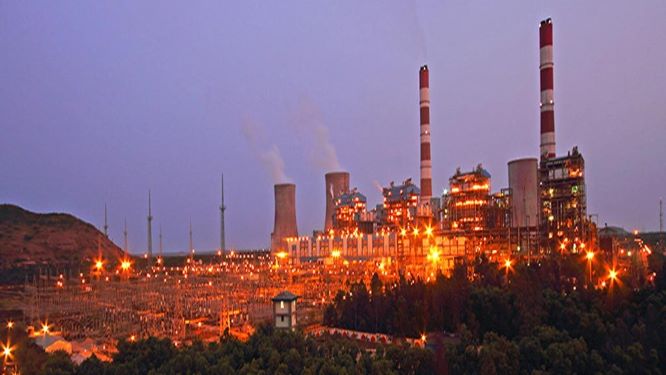

Tanda Thermal Power plant will soon be lit by solar lights
State owned power generator NTPC has announced a big ramp up of its purchases of agri-residue based pellets , to 6 million tonnes. At Rs 7,000 per tonne, this is expected to cost the firm Rs 4200 crores through the year, providing farmers in North India especially with an incentive to supply to the firm, rather than burn the stubble.
Air pollution has finally become a hot topic in North India, after years of worsening pollution, and little success with stopgap measures taken by various local government’s especially in the capital, New Delhi. Measures taken have ranged from banning construction, to firecrackers during Diwali and even the dreaded odd even vehicle scheme. Three months in, not much has changed on the ground. Putting the onus for action squarely back on stubble burning as a key cause to be tackled.
However, even as NTPC was making these moves, comes the news that coal powered thermal plants surrounding the capital continue to run, despite missing yet another deadline for installing pollution control equipment for sulfur gases.
According to reports, only one out of the 11 utilities in the national capital region had installed the equipment.
The original December 2017 deadline for the utilities to meet the emissions standards has already been extended twice, on the pleas of plant operators. They have usually blamed high costs and technical issues.
News agency Reuters had reported last month that more than half of India’s coal-fired power plants and 94% of the coal-fired units ordered to retrofit equipment to curb air pollution would likely miss the phased deadlines.
The repeated failure to meet deadlines, and the lenience to operators underscores just how far players will go to push their luck, on a grid that is still dependent on thermal power primarily. Knowing that shutting them down is not really an option, operators have continued to defy missives and threats of a shutdown, making the main central pollution body, the Central Pollution Control Board, look toothless.
That some of these plants supply power at relatively low rates to the grid makes it even more complicated, in a distribution market that is riven by subsidies losses and a reluctance to hike end consumer rates. India thus faces the continued prospect of supposedly cheap power, but at a high cost to its health.
Among the key privately firms running the plants are Vedanta and L&T.
Reliance Industries Ltd (RIL) Chairman Mukesh Ambani has announced a massive ₹75,000 crore investment in…
Green-energy heavy-duty truck maker Blue Energy Motors has reached a remarkable milestone by surpassing 50…
India is on track to exceed its Nationally Determined Contribution (NDC) target of reducing the…
Raj Process Equipments and Systems Pvt Ltd, a Pune-based technology innovator and engineering conglomerate, is…
Europe’s renewable energy sector faces a potential slowdown, burdened by grid saturation, permitting delays, and…
Hexa Climate has announced the launch of a pioneering afforestation project in Purulia, West Bengal.…